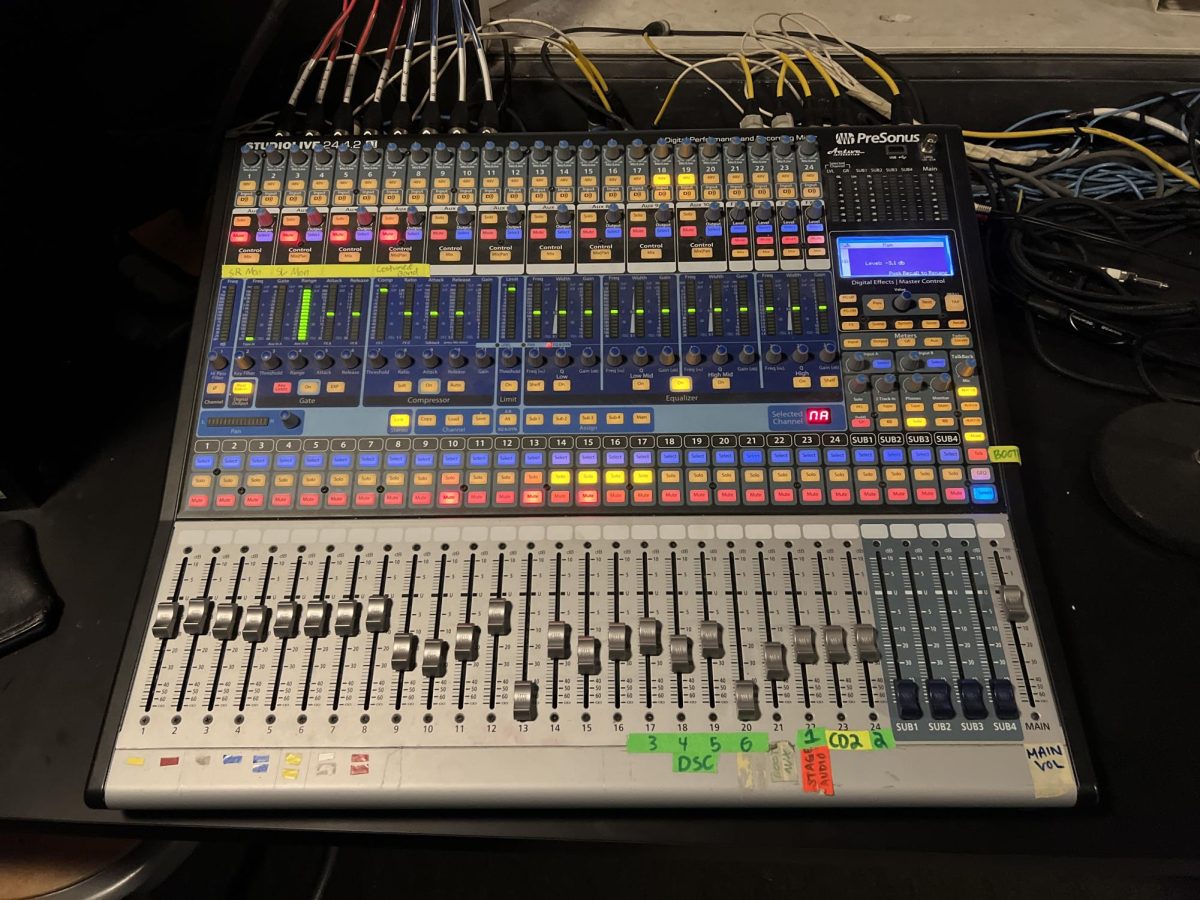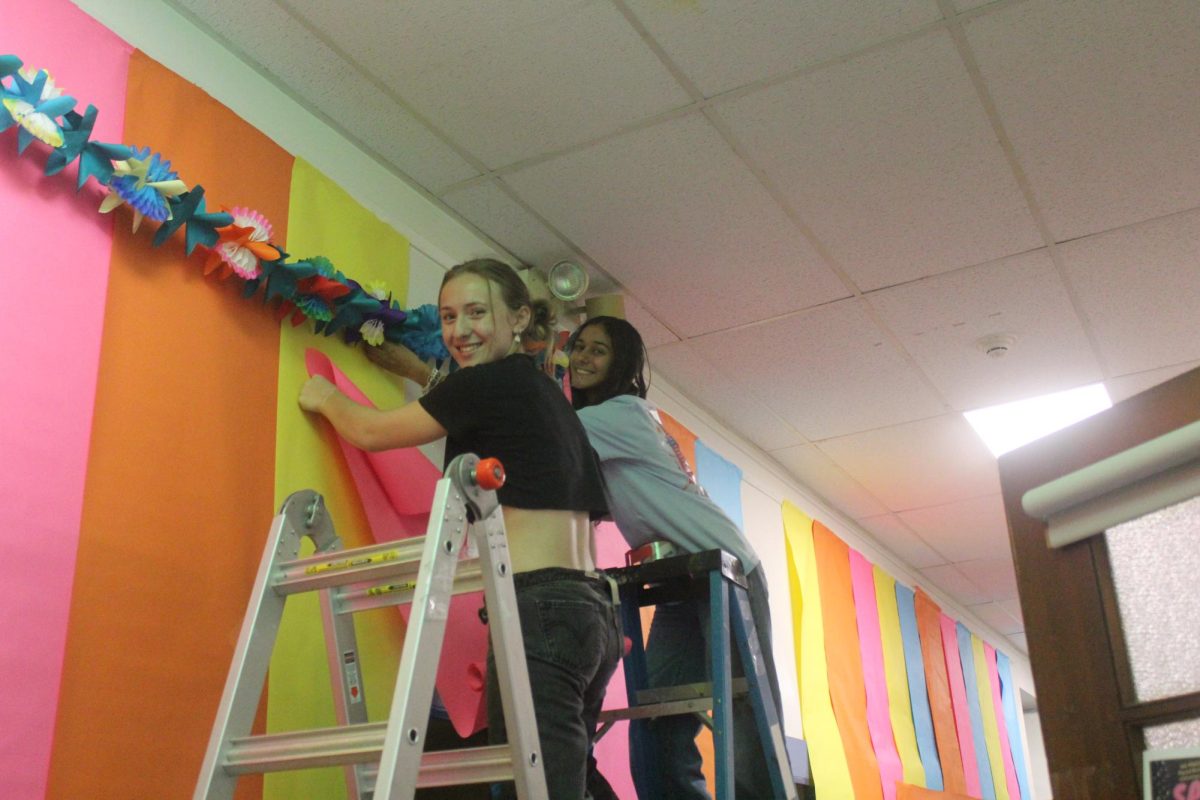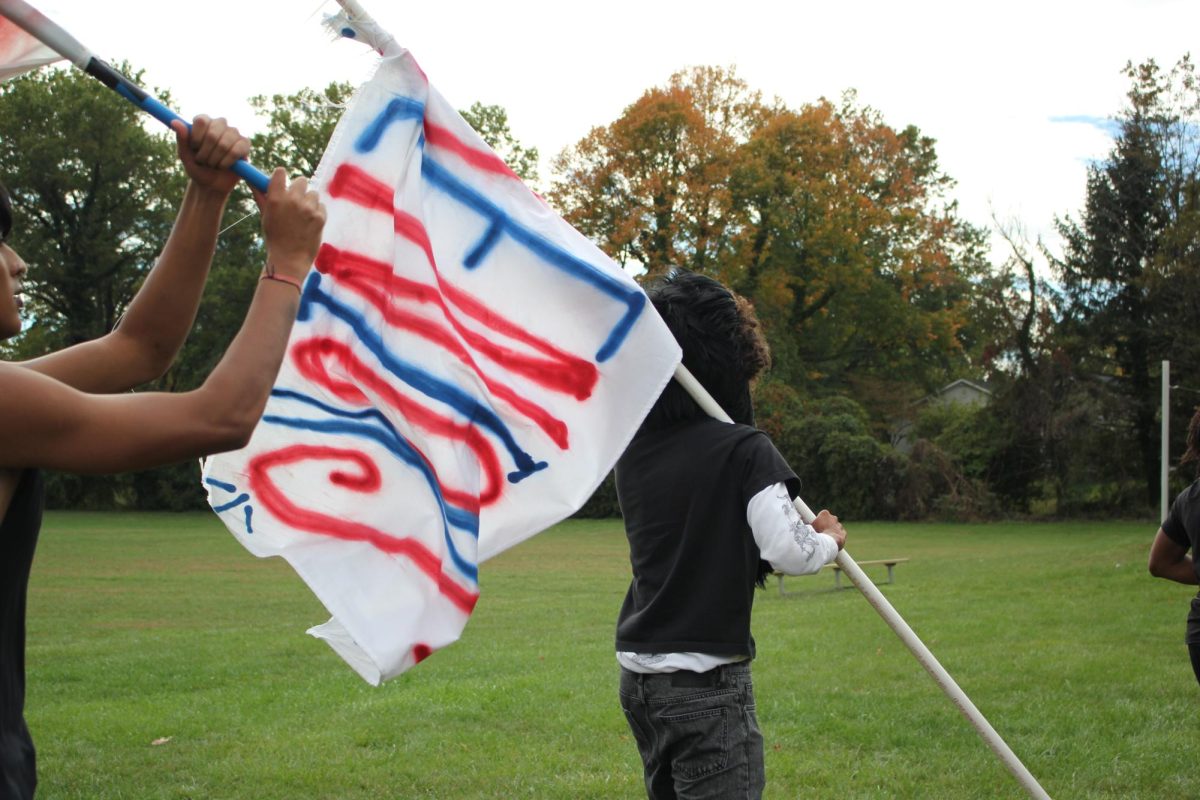Two years ago, Erik Curtis was the woodshop teacher at MFS. Now, he’s the carpenter in “Instant Dream Home,” a new home renovation show on Netflix.
Netflix’s “Instant Dream Home” was released on August 10th. The show follows “a team of rapid-fire renovators [that] takes big risks and makes painstaking plans to transform families’ homes from top to bottom in just 12 hours,” as Netflix describes it.

The “rapid-fire renovators” are led by their team leader, actress Danielle Brooks. However, the show has a consistent spotlight on four people, each specializing in a different area of the renovation– Paige, Special Projects; Nick, Exterior Design; Adair, Interior Design; and Erik, The Carpenter. Erik is Erik Curtis, former Moorestown Friends School woodshop teacher.
When Curtis began missing school just before the Covid-19 pandemic to fill his role in the show, students weren’t aware of the new opportunities he was pursuing. Substitutes would fill in for his class while students continued to work on their projects and were left wondering where Curtis was.
As Curtis described it, “I got a call, or, I got a DM through Instagram … This was February of 2020, and I just got a random DM from a casting agent. There were a couple other television opportunities that didn’t pan out, so I didn’t think much of it. And then I actually got a call, like a callback … they called me and asked if I could be on a plane to L.A. in two hours.”
Curtis continued, “I was 20 minutes away from home [at the school woodshop] and my home’s 20 minutes from the airport. I’m covered in sweat and sawdust, and I was like, ‘Yeah, dope, let’s go.’ So I hopped on a plane to L.A. on a Thursday evening. We didn’t have school that Friday, so I flew out for a screen test and had a conversation with Adair and Paige and Nick and we just kind of [started talking] and immediately all got along really well.”
Curtis was not given much information on the role and opportunity he was being offered: “They found me on the internet and asked if I would try out for a quote ‘home renovation show.’ They wouldn’t tell me the platform. They wouldn’t tell me what the show was about. All they would tell me is that it’s a home renovation short show for a big network. I was like, ‘I mean, what do I have to lose?’”
The career change is extreme, to say the least. During his time at MFS, Curtis taught woodshop for all students in fifth through eighth grade, as well as Upper Schoolers who chose to pursue it. But now, he is completing home-renovations with impressive speed and a team of more than 200 professionals, often involving complex machinery, helicopters, cranes, and forklifts. Curtis mentioned that a skill he sees himself using in both the classroom and on set at his show has been the ability to “figure out the fastest solution to a complicated problem.”
Curtis said, “In the classroom, there were often projects … where a kid would come up with an idea that was genuinely a really good idea, and I would be excited to explore this with them and they’d be like, ‘Okay, how are we going to do it?’ I just go, ‘I don’t know.’ And so then my job as the teacher was to figure out the simplest possible execution of that project so that the student could handle that workload.”
This skill proved to be crucial in Curtis’ time spent on the show: “The restraints on time are obvious. But there’s also the restraints of the physical limitations of where I can be on a job site … As a boss, as a general contractor, as a project manager, my goal is not to necessarily build all the things, but to set up systems that other people can be successful in, which is very similar to the classroom. And so if I have to do some wild, crazy thing, there’s a million ways that I could do it. But my job on the show is to figure out the simplest possible solution … in order to give the carpenters that I’m working with the opportunity to succeed.”
One particular aspect of the show that is much different from his previous work environment is the stress that comes from time limitations. Curtis mentioned that he thinks “a normal human being with a normal brain would feel stress in that situation … [but] I don’t think my brain is very normal. I found [each situation] exhilarating. And I found it to be a ton of fun.”
Additionally, Curtis was pushed to work in situations where the stakes were high, and he had to plan for the possibility of failure: “Anybody who’s been in the woodshop knows there’s always going to be something that goes wrong. You can bank on the fact that something is not going to go the way you planned. So I always assume a 10 to 15% margin of error … But you do have to be aware that any time you open up a floor, any time you open up a wall, any time you open up a roof, there’s going to be things you don’t expect or something is going to break. Something is going to be installed wrong, somebody is going to be sick, and you’ve got to shift priorities. So there’s always going to be something that comes up that I think is where my creative challenge always came in.”
Curtis said that this aspect would prove to be “the work that [he] really [does] enjoy.” He added, “I always told you guys in the classroom, stop trying to be smart and [instead] be clever. Clever will get you very far in life. And so it’s just that moment of, ‘I don’t know, let’s figure it out.’ Those are always such fun moments because those are the moments that you discover new things and you come up with new solutions. It’s just because that pressure is on and you have to do it now. And your brain fires in a new direction than it ever has before. And that’s a lot of fun to experience with a group of other highly skilled craftsmen.”
Anjali Shah ’26, one of Curtis’s former students, said she “didn’t expect to see him on a show, and then when [she] watched it, [she] watched the whole thing in one day, because it was just so good.” She also mentioned that ”what was so cool to see was that he was the exact same on the show as he was in person.”
For some viewers, the show itself struck a chord. Another former student of Curtis, Miles Wilkins ’25, commented, “I think it’s nice that the team does such nice things for people such as renovating their house.”
Finally, Curtis commented on his mindset about taking his career to a television network, saying, “I am of the opinion that whatever it is that you want to do in life, there is a market for it, if you take the time to become really, really good at it. If you truly master a craft, there will always be somebody willing to pay you for your work. It’s not easy to get there. It takes a really long time to get there. I’ve been chasing this dream relentlessly for over 15 years, and I still don’t think I’m a master of my craft. But if you chase that thing, whatever that thing is for you, you have an opportunity to make a really beautiful life. And I think that’s something worth pursuing.”












